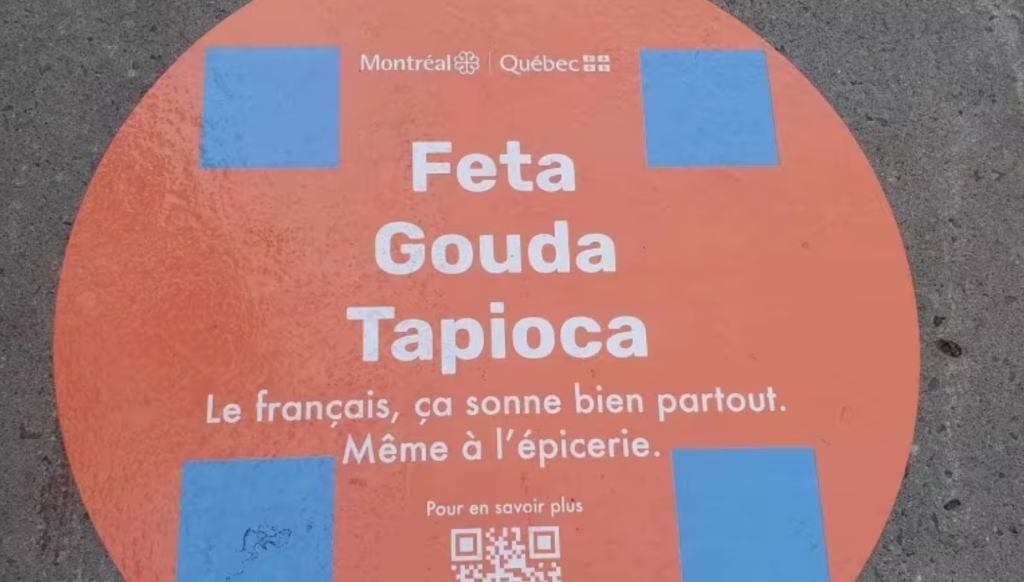
A municipal and provincial initiative to promote the use of French in light of Quebec’s language legislation, Bill 96, has sparked controversy in Montreal’s Parc-Extension neighborhood. The campaign involves placing circular stickers on sidewalks featuring French words alongside a QR code, intending to reinforce language learning. However, locals have raised concerns about the effectiveness and safety of the campaign.
The stickers, which display French terms like “Lait” (milk), “Poulet” (chicken), and “Navet” (turnip), have been placed at intersections and busy streets. Despite the campaign’s intention to encourage language acquisition, residents worry that the vibrant stickers could distract drivers and pedestrians alike, potentially leading to accidents.
Montreal officials aim to install over 100 of these stickers across the Villeray-Saint-Michel-Parc-Extension borough as part of a sidewalk project costing approximately $9,100. While the initiative’s goal is to reinforce French vocabulary, city councillor Mary Deros, has criticized it as “visual pollution.” Deros argues that the funds could have been better directed to address pressing local issues, such as evictions and affordable housing.
Dominique Ollivier, president of Montreal’s executive committee, defended the campaign’s intention. She clarified that it wasn’t aimed at complete newcomers to the language but rather intended to assist those already learning French. Ollivier emphasized that exposure to the language, its speakers, and various contexts is crucial for language development.
The debate highlights the complex balance between promoting language learning and ensuring public safety, ultimately raising questions about the most effective and respectful ways to encourage linguistic integration in diverse communities.
Already stickers have been removed by residents and others have been defaced affirming the controversial nature of the City’s move.








